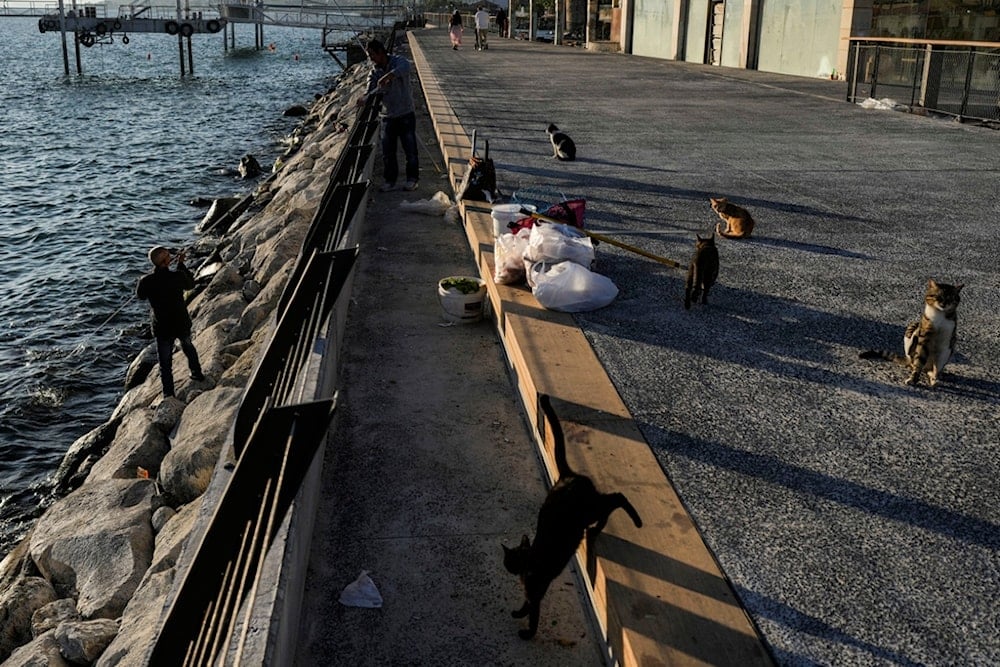'Israel' faces strain as CB holds rates, Northern evacuees in limbo
According to Bloomberg, 13 out of 14 analysts surveyed expected the central bank to leave rates unchanged, with one predicting a modest rate cut of 25 basis points.
-

Cats wait as men fish on the shore of the Sea of Tabarayya, northern occupied Palestine, Saturday, Dec. 14, 2024. (AP)
The Bank of Israel has decided to maintain its base interest rate at 4.5%, citing inflationary pressures exacerbated by the ongoing multi-front war with Resistance movements.
This decision, widely anticipated by analysts, reflects growing concerns about the economic challenges posed by the war, which has slowed the Israeli economy and driven inflation higher.
"Israel's" wars have also intensified social and regional disruptions, with a recent survey revealing that 44% of evacuees from northern areas, including settlements like Shlomi and Metula, are still undecided about returning to their settlements.
In contrast, only 5% of evacuees have definitively ruled out returning, although dissatisfaction with compensation and feelings of insecurity remain prevalent.
Economic struggles
Observers argue that the Bank of Israel's move to hold rates steady exposes the challenges policymakers face in tackling inflation and economic slowdown. While inflation is expected to rise further, the war has already slowed economic activity.
According to Bloomberg, 13 out of 14 analysts surveyed expected the central bank to leave rates unchanged, with one predicting a modest rate cut of 25 basis points.
Read more: Why 'Israel's' ultimate defeat will come from economic isolation
The ongoing wars have placed additional pressure on the regime to address economic instability, particularly in regions directly affected by war.
Northern evacuees have voiced dissatisfaction with compensation levels, which they say fail to cover the extent of their losses.
Many also report a breakdown in community cohesion, with some settlements, like Metula, experiencing pronounced social fragmentation.
Calls for immediate action
Knesset member Meir Cohen described the situation as a "wake-up call" for the leadership, urging swift action to address security concerns, inadequate compensation, and the disintegration of community ties.
"We cannot allow the north to remain neglected. The upcoming conference is an opportunity to create real solutions, not just empty statements," Cohen said.
Meanwhile, Finance Minister Bezalel Smotrich has set a deadline of March 1 for evacuees to return to their settlements, even as many express uncertainty about their future.
A youth initiative, Heading North, recently reported that 93% of young evacuees have no intention of returning, citing security and economic concerns.
Read more: More settlers emigrated from Tel Aviv, Haifa than other cities

 3 Min Read
3 Min Read








